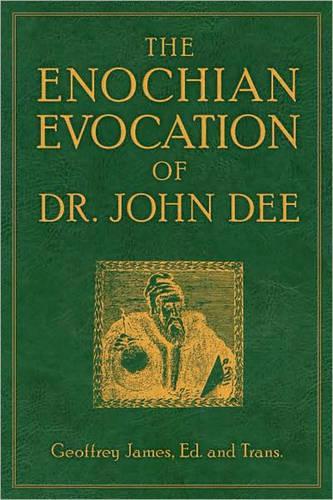
Enochian Evocation of Dr. John Dee
(Paperback)
Publishing Details
Enochian Evocation of Dr. John Dee
By (Author) Geoffrey James
Red Wheel/Weiser
Red Wheel/Weiser
20th April 2009
United States
Classifications
General
Non Fiction
Magic, spells and alchemy
133.91
Physical Properties
Paperback
232
Width 152mm, Height 229mm
1g
Description
Based on the transcriptions of Dr. John Dee, the famous Elizabethan scientist and magus, The Enochian Evocation of Dr. John Dee is the translation of the original material received from direct Angelic contact. In 1852 Dee and his partner Edward Kelly, while gazing into a crystal stone, began to see and hear angels. These beings desired to re-establish the true art of magic, which had been lost due to man's wickedness and ignorance. The true magical art, these beings claimed, would bestow superhuman powers upon its practitioners, change the political structure of Europe, and herald the coming of the Apocalypse. Dee believed this research would greatly benefit mankind and documented all of the channeled information into a series of manuscripts and workbooks. Author Geoffrey James presents here the direct translation of the core of the channeled material itself, framed in a historical context, with authority and integrity. From the introduction: Dee discovered that he was unable to perceive spirits on his own, and so was forced to employ skryers or crystal gazers. The most prolific of Dee's skryers was Edward Kelly, a man of mediocre education whose main interest was alchemy. Kelly originally asked to work with Dee because Kelly believed that with divine aide they might discover the philosopher's stone that would transmute lead into gold. Dee was hesitant at first, but when they performed a simple ceremony, it was far more successful than anything Dee had ever experienced...Kelly's skrying was destined to produce what is perhaps the most unusual magical literature of the Renaissance.
Author Bio
Geoffrey James is an amateur historian of western religion. He is best known for his work on the life of John Dee, the court magician of Queen Elizabeth I. He is a Magna Cum Laude graduate of the University of California, where he was a Rhodes Scholarship Candidate and elected Phi Beta Kappa.
